From piglet to finisher without antibiotics
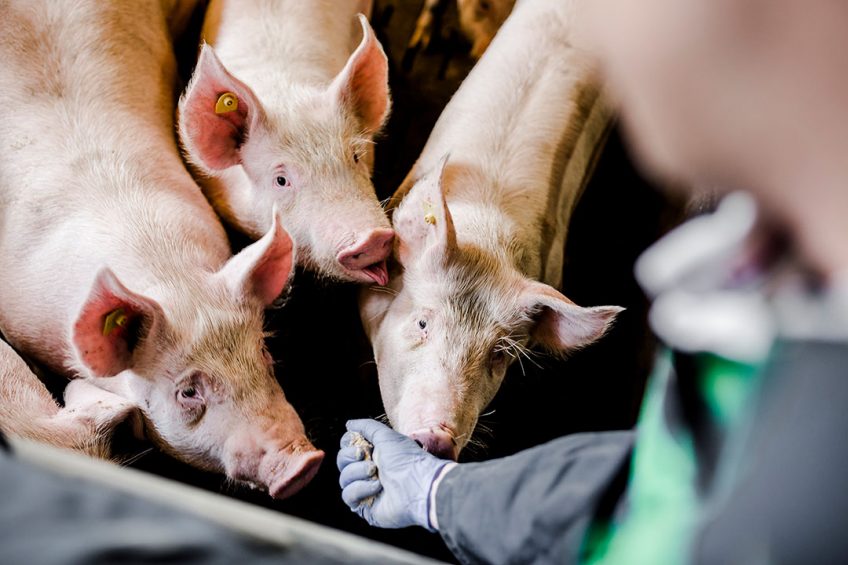
Among the numerous professionals involved in livestock production nowadays, the topic is always the same: How to sustain animal production without antibiotics? How to reduce the need for antibiotics? Which are the alternatives?
Antibiotics as growth promoters or prophylactics in healthy animals need to be restricted and antibiotics as curatives should only be administered on the basis of disease diagnosis and prescription.
This leads to a major question: How can intensive animal production ensure animal health, productivity and profitability in this new era?
Reduced antibiotic use is challenging and strongly involves all players in livestock production. Holistic approaches are needed, and no silver bullets or ‘one size fits all’ solutions are available. Each farm is unique with its specificities, weaknesses and opportunities. Proactive approaches are needed, from the reduction of disease pressure, to feed and nutritional strategies aiming to improve the animals’ resilience. As economic viability is the final purpose, a high productivity and performance must be achieved while respecting the welfare and well-being of the animals.
For centuries, humans have explored nature, discovering various active substances and improving their knowledge about active plant-based substances that could heal, treat or even prevent diseases. Scientific knowledge allows us to identify, characterise and standardise phytogenic (plant-derived) bioactive compounds. Delacon, an expert in phytogenic feed additives (PFAs), has coined the term phytogenics, nowadays accepted, recognised and widely used for plant-based feed additives. In addition to an increase in palatability, scientific studies have shown that phytogenics (e.g. essential oils, herbs, spices, saponins, etc.) have other extraordinary properties, such as antioxidant, anti-inflammatory or growth-promoting effects.
From the piglet to the finishing pig
Weaning is the most stressful period for a piglet and brings along unpleasant surprises. An immature digestive tract makes the piglet susceptible to bacterial pathogens, which often results in diarrhoea, growth depression, anorexia and in the worst case death. In most cases, producers and veterinarians overcome this painful period by providing antibiotics and/or zinc oxide (ZnO) as prophylactic medication to piglets. As ZnO, at medicinal dosages, will be banned in the EU by 2022, the time is right to focus on non-medical solutions for upstream piglet support. Specific formulated phytogenics have shown to support the piglet during the challenging post weaning period. Phytogenic substances have antioxidant and anti-inflammatory actions on intestinal layer cells, leading to a better defence against damages in the cell barrier either resulting from the natural cell immune response mechanisms, like inflammation reactions or those originated by toxic compound (bacteria toxins). The most important benefit of phytogenics is their flavour-enhancing property: Although the weaning process usually begins with a decrease in feed intake, a trial in Belgium shows a 4.9% increase in average daily feed intake and a 4.8% increase in average daily gain with the addition of Fresta Protect in piglets post-weaning (Figure 1). In addition to adequate feed intake, feed conversion and nutrient uptake allow the piglet to maintain its stable intestinal integrity and function.
Figure 1 – Effect of a phytogenic feed additive on growth performance of post-weaning piglets.

By promoting feed intake post weaning, damages of intestinal epithelia can be reduced, thus reducing the incidence of post weaning diarrhoea (PWD). A field trial in Germany supported this thesis. Here it was shown that the addition of PFAs to the diet of weaned piglets (400 animals) with re-occurrence of E. coli associated diarrhoea reduced the incidence of PWD by 31% and medication by 45% compared to the control group (Figure 2). For the farmer, this means considerable savings in medical costs.
Figure 2 – Effect of a phytogenic feed additive on the incidence of diarrhoea and medication in post-weaning piglets.

When we recall that antibiotics are one specific category of antimicrobials and that not all antimicrobials are antibiotics, it will be easy to understand how specific phytogenics can help to control bacterial pathogenicity: Bacteria use Quorum Sensing to communicate and to sense the population density via the accumulation of their own produced signalling components. When a certain density is achieved, bacteria modify their gene expression to produce virulence factors and become pathogenic – infections, and probably diseases, occur. Selected phytogenic actives can inhibit bacterial communication by disrupting the sense of density. Thus, bacterial infections can be controlled and reduced. For the producer, the need of prophylactic treatments (like antibiotics and ZnO) is avoided, and medication costs strongly reduced. As for the piglet, being protected around weaning is equal to health and well-being, to guarantee growth and feed efficiency in immediate and subsequent growing/finishing phases.
Getting big with phytogenics
To take full advantage of healthy animals performing at their best while entering the growing-fattening phase, phytogenics are a valuable tool to sustain daily weight gains and feed efficiency. As the feed costs of the grower-finisher phase (20–115 kg body weight) accounts for up to 70% of the total production costs, improving feed digestibility and feed conversion ratio will increase pig profitability. By stimulating secretion of digestive enzymes and optimising nutrient uptake, phytogenics have the ability to increase feed digestibility. Plus, the antioxidant and anti-inflammatory properties of phytogenics support the animal to face common stressful situations (management, environmental conditions, density, feed competition, etc). Moreover, assorted phytogenics have shown the ability to reduce ammonia formation via decreasing the nitrogen excretion and via inhibition of ammonia formation. Thus, the negative impact of ammonia emissions on the environment and the noxious effect on the respiratory epithelium of animals and workers can be reduced.
Aromex Pro is Delacon’s PFA blend of essential oils and saponins, perfectly aligned to the needs of growing-finishing pigs. The combination of active ingredients in this phytogenic feed additive results in higher feed intake, nutrient digestibility and retention, which leads to an improved animal growth.
Are you ready to become phytogenius?
Phytogenics are plant derived natural bioactives with proven effects to support a profitable pig production. Their potential as natural growth promoter has been demonstrated as the animal’s feed intake is stimulated. Efficient digestion and nutrient uptake results in better growth performance and improved feed conversion ratio. In this new farming reality, phytogenics help to support a sustainable and antibiotic-free livestock production. Thus, Delacon´s phytogenics allow the producer to accomplish the daily growing demand for safe and sustainable livestock production practices.
References available upon request
Author: Sandra Chamusco, Species Leader Swine, Delacon
 Beheer
Beheer

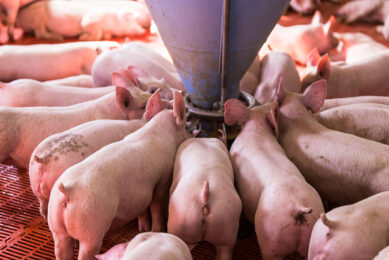
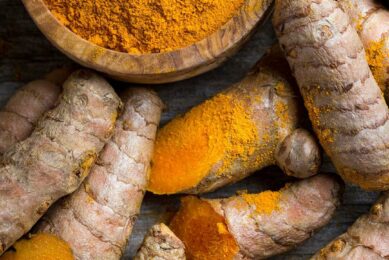
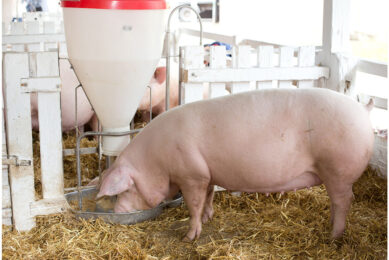
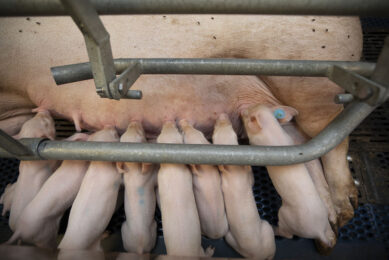
 WP Admin
WP Admin  Bewerk bericht
Bewerk bericht